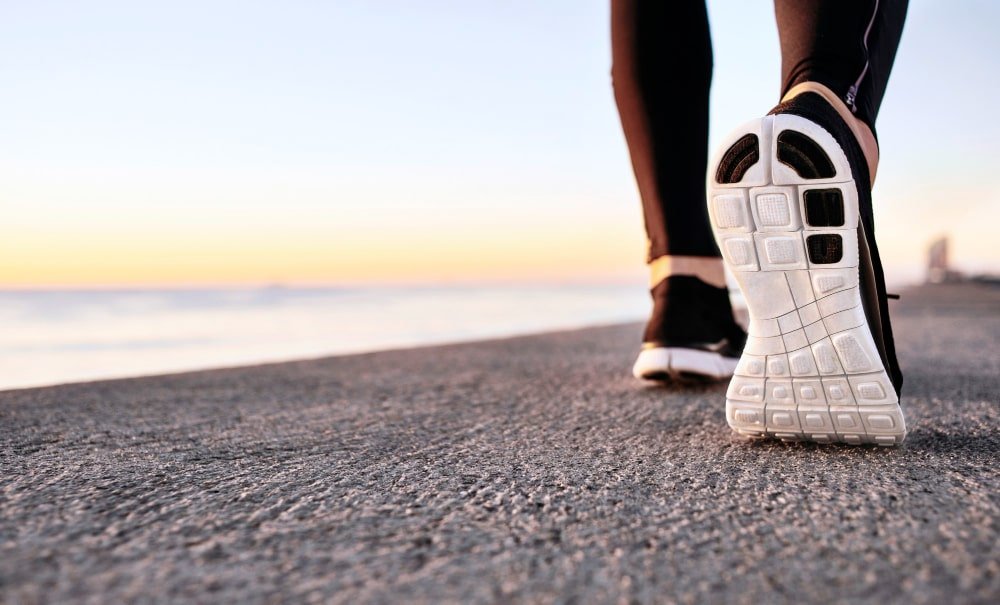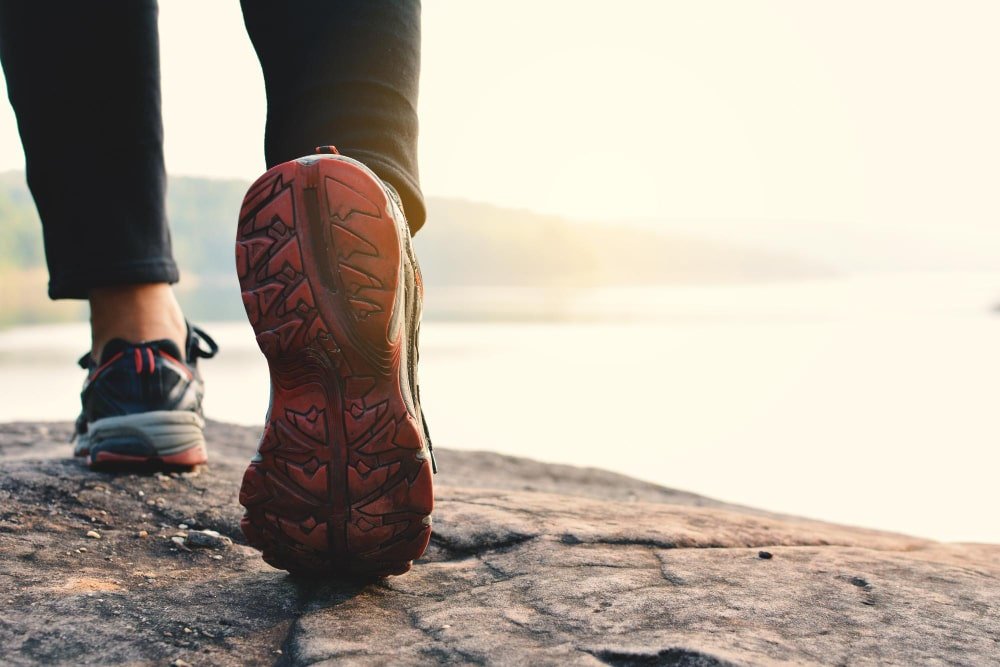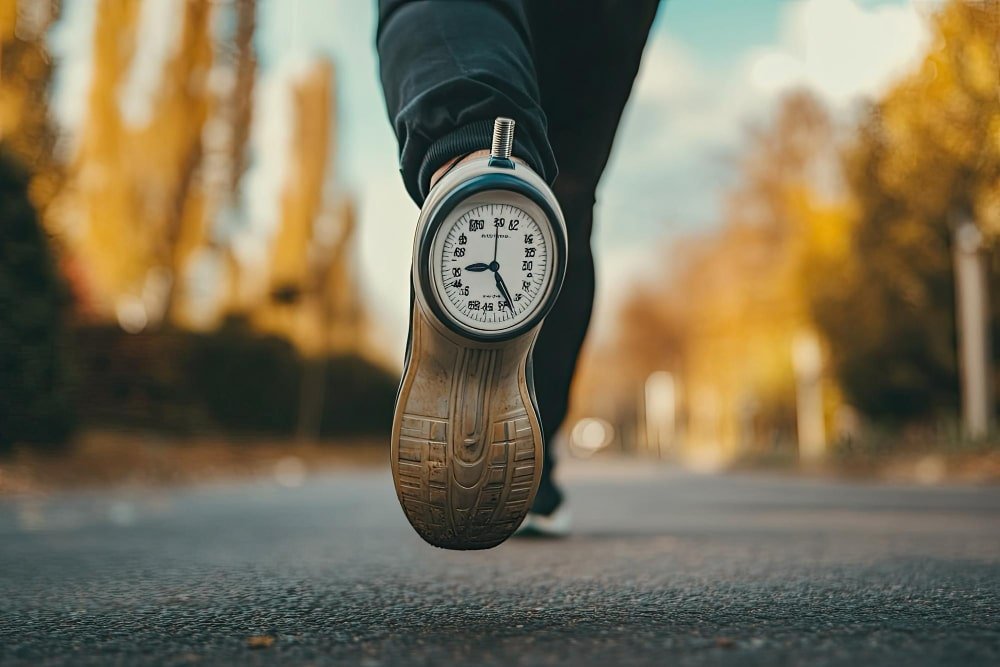Table of Contents
1. Introduction: Why Walking Matters

Walking is one of the simplest yet most powerful physical activities you can do. It’s low-impact, accessible to nearly everyone, and doesn’t require a gym membership or special equipment. But what many people don’t realize is how effective walking can be when it comes to burning calories and improving overall health.
2. How Many Calories Does Walking Burn?
The number of calories you burn while walking depends on several factors, but here’s a general estimate:
| Weight | Distance | Duration | Calories Burned |
|---|---|---|---|
| 60 kg | 5 km | ~60 min | ~220–250 kcal |
| 70 kg | 5 km | ~60 min | ~260–300 kcal |
| 80 kg | 5 km | ~60 min | ~310–350 kcal |
Note: These are averages. Actual numbers may vary depending on pace and terrain.
3. Key Factors That Affect Calorie Burn While Walking
Several elements play a role in how much energy your body uses during a walk:
- Body Weight: Heavier individuals burn more calories.
- Walking Speed: A faster pace burns more calories per minute.
- Terrain: Inclines or rough terrain increase exertion.
- Weather & Clothing: Cold weather or carrying extra weight increases calorie use.
- Metabolism: Everyone’s body burns energy differently.
4. Walking vs. Other Exercises
Walking may not seem intense compared to running or HIIT, but consistency is key. A regular 30–60 minute walk can be just as effective over time, especially when combined with a balanced diet.
- Running (30 min): ~300–400 kcal
- Cycling (30 min): ~250–350 kcal
- Walking briskly (60 min): ~250–300 kcal
So yes — walking does count.
The 11 Powerful Benefits of Walking One Hour Every Day
5. Walking for Weight Loss

To lose weight, you need to create a calorie deficit — that is, burn more calories than you consume. Walking daily can help you reach that goal in a sustainable way. A 60-minute walk, five times a week, could burn an extra 1,000–1,500 calories, or more, depending on intensity.
Tip: Use a calorie-tracking app to combine walking with healthy eating for the best results.
6. Pro Tips to Maximize Your Walks
- Use proper shoes to avoid joint strain
- Maintain good posture — don’t slouch
- Incorporate intervals — alternate slow and brisk walking
- Walk uphill or include stairs to boost the burn
- Add weights (like a light backpack) for extra resistance
- Listen to music or podcasts to stay motivated
7. Final Thoughts About Walking
Walking isn’t just a way to burn calories — it’s a gateway to better health, clearer thinking, and stress relief. Whether you’re aiming to lose weight, improve your mood, or simply stay active, a daily walk can make a huge difference.
So put on your shoes, step outside, and let each step move you closer to a healthier you.
How To Get Fit Running: From Couch to 5K – The Easy Way
8. Walk To Burn a 1000 Calories
| Body Weight (kg) | Walking Speed (km/h) | Calories Burned per Hour | Time Needed to Burn 1000 Calories |
|---|---|---|---|
| 60 | 3.2 (slow) | ~173 kcal | ~5.8 hours |
| 60 | 4.8 (moderate) | ~266 kcal | ~3.8 hours |
| 60 | 8.0 (fast) | ~514 kcal | ~2.0 hours |
| 70 | 3.2 (slow) | ~214 kcal | ~4.7 hours |
| 70 | 4.8 (moderate) | ~329 kcal | ~3.0 hours |
| 70 | 8.0 (fast) | ~636 kcal | ~1.6 hours |
| 80 | 3.2 (slow) | ~253 kcal | ~4.0 hours |
| 80 | 4.8 (moderate) | ~388 kcal | ~2.6 hours |
| 80 | 8.0 (fast) | ~749 kcal | ~1.3 hours |
| 90+ | 3.2 (slow) | ~290+ kcal | ~3.5+ hours |
| 90+ | 4.8 (moderate) | ~440+ kcal | ~2.3+ hours |
| 90+ | 8.0 (fast) | ~800+ kcal | ~1.25+ hours |






[…] Read More: Walking and Burning 1000 Calories: How Every Step Counts […]
[…] Walking and Burning 1000 Calories: How Every Step Counts […]
[…] Walking and Burning 1000 Calories: How Every Step Counts […]
[…] What About Walking? […]